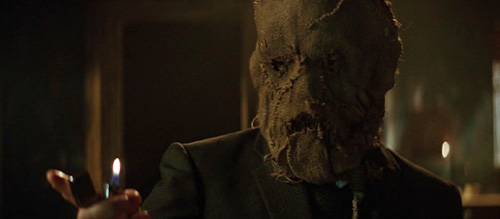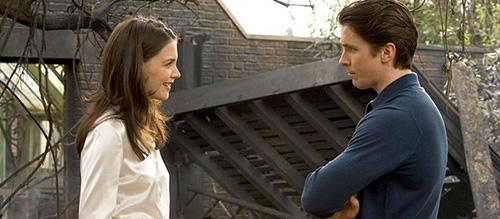10 Best Batman Begins Moments
Batman Begins was released all the way back in 2005. So early was this DC movie, in fact, that director Christopher Nolan was only 34 when it was released, and star Christian Bale just 31. It was only the fourth feature film of Nolan’s career and cost a whopping $150million to make, but such was his early-career pedigree forged with Memento and Insomnia that studio Warner Bros set a world record by spending more money on promotional material than had been spent on any other film at the time: $100million. They didn’t want their reboot of one of their primary earners to spectacularly fail like Batman & Robin had in 1997.
What Nolan put together was an all-star Batman movie in front of the camera and behind the scenes. Whether it be Michael Caine, Morgan Freeman, Rutger Hauer and Liam Neeson on the screen, or Hans Zimmer, James Newton Howard, David S. Goyer and Wally Pfister behind it, Batman Begins was more than what we had come to know of superhero movies to that point; it was a top-of-class cinematic experience in a sub-genre that to date had only ever seen Superman, Blade, X-Men and Spider-Man have a taste of success. Nolan was a director destined to change what we understand the modern blockbuster to be, and in Batman Begins he made his first steps, evolving superhero cinema in his image by eventising high quality tension-driven fare.
In this Movie List from The Film Magazine, we’re celebrating the work of Christopher Nolan and his ensemble of cast and crew to judge which of Batman Begins’ myriad of memorable moments are its most memorable, most important and most impactful, comparing the iconic to the memeworthy, from the prologue to the epilogue, for this: the 10 Best Batman Begins Moments.
Follow @thefilmagazine on Twitter.
10. Batman Meets Scarecrow

“Do you want my opinion? You need to lighten up.”
While the obvious challenges to Batman in Batman Begins may be the corporate deconstruction of Bruce Wayne’s business empire and his battling of the degradation of Gotham’s underworld, Scarecrow’s presence in Rachel’s life is one that grows in importance as Bruce’s desire to be with Rachel does, Batman finally confronting “the face of fear” as Gotham begins to crumble around him and Rachel gets in over her head.
By this point in Batman Begins, Dr Crane has already proven the power of his lethal toxin on mob boss Falcone, and in doing so has proven to us that he is capable of offering a far tougher test to Batman/Bruce Wayne than the physical altercations he has so far been in. Appropriately, the scene begins in darkness, Batman fighting from his position of strength, but as Scarecrow’s toxin is deployed we see Batman struggle while in his element, a painful reminder of the struggles of the first act and a clever foreshadowing of the mental games that shall prove his biggest test in this story’s third act.
The scene ends with a blow out that sees the Batman fall several stories whilst on fire – it’s quite the visual – Bruce Wayne waking to Alfred and Lucius Fox after dreaming of his father rescuing him from the cave, the words “why do we fall Bruce?” echoing into consciousness as we experience one last character development within a multifunctional scene.
9. Rachel’s Final Decree

“The man I loved, the man who vanished, he never came back at all […] Maybe once Gotham no longer needs Batman, we’ll see him again.”
After saving Gotham from city-wide destruction, Bruce Wayne’s childhood friend Rachel Dawes – the woman who has inspired his ideological stance and has been trusted with knowing that he is the Batman – offers a truth that serves as a painful blow: that for Bruce to save Gotham, he must learn forego all personal relationships.
It’s a scene representative of Wayne’s ongoing turmoil throughout the trilogy, a stark reminder of what Wayne must sacrifice for the greater good, and of course vital to how we understand him in The Dark Knight when he loses Rachel, and particularly The Dark Knight Rises when he has to offer the ultimate sacrifice of giving up on everything and everyone he knows. In the context of Batman Begins, it illustrates that for all the good Batman has clearly achieved, the man himself remains unsalvaged from the grief-ridden young man of the first act, his pain and darkness only growing deeper, his person having become more isolated, Bruce Wayne having become the Batman for better and for worse.

